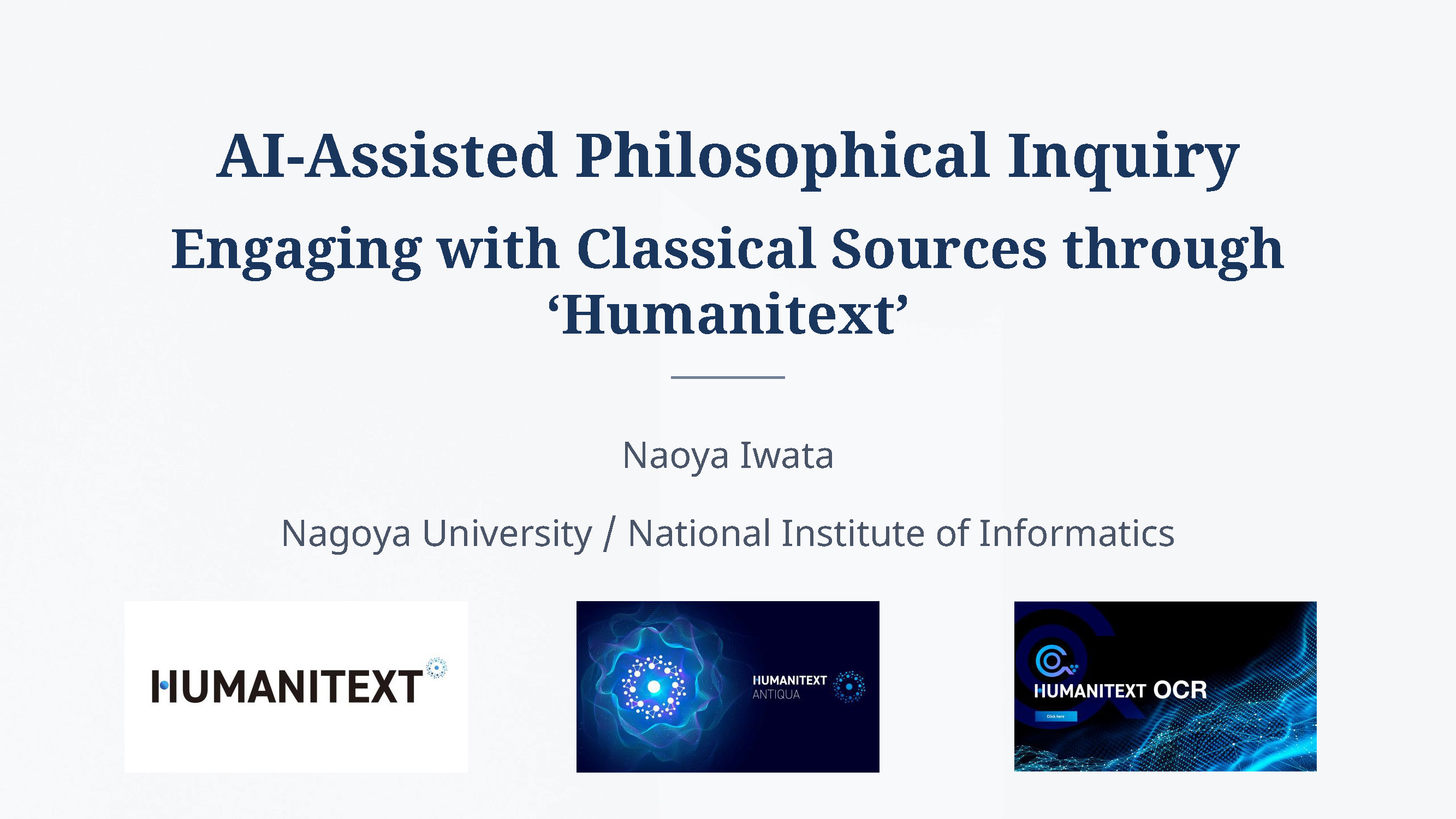Humanitext Team Presents at Philosophical Interchange between Sungkyunkwan and Nagoya University
11/1/2025

Humanitext Team Presents at Philosophical Interchange
From November 1-3, 2025, Nagoya University hosted the “Philosophical Interchange between Sungkyunkwan and Nagoya University,” fostering scholarly dialogue between the two institutions.
As part of this academic event, Naoya Iwata of the Humanitext project delivered a presentation on November 1 titled “AI-Assisted Philosophical Inquiry: Engaging with Classical Sources through ‘Humanitext’.”
The presentation focused on the technological foundations of “Humanitext Antiqua,” an AI-driven dialogue system developed by the project, and its potential to reshape classical studies.
Presentation Highlights
The talk began by addressing the challenges classical researchers face, including vast textual data, linguistic barriers, and the fragmentation of disciplines. Our research aims to use AI to uncover conceptual connections that traditional keyword searches miss.
Key topics included:
-
Humanitext Antiqua: A New Dialogue with AI We introduced the system as an AI assistant that allows researchers to ask complex questions in their native language (like English or Japanese). The system instantly retrieves the most relevant passages from Greek or Latin originals and generates synthesized answers grounded in textual citations.
-
RAG: The “Anti-Hallucination” Engine AI “hallucination” is fatal in humanities scholarship. We emphasized our use of Retrieval-Augmented Generation (RAG), which ensures that all AI-generated answers are based strictly on evidence retrieved from the classical corpus, not fabricated.
-
COT: The “Translator” for AI Retrieval To overcome the poor retrieval performance of AI for Ancient Greek and Latin, we presented our novel solution: “Context-Oriented Translation (COT).” This method involves pre-processing the texts by translating a contextualized gist into English—the “pivot language” that embedding models understand best—to create a high-precision semantic map.
-
Data Expansion: From 1,000 to 2,500 Works We reported on our ongoing efforts to massively expand the corpus using the rich TEI/XML data from the Perseus Digital Library. This involves a specialized tool,
tei_rag_chunker, which intelligently parses complex XML to link critical notes and apparatus to the main text, enabling deeper, text-critically-aware analysis.
This presentation showcases our vision of moving AI from a simple “search tool” to an “AI Research Agent” that actively assists the scholarly process in a human-in-the-loop collaboration. We were grateful for the engaging discussion and valuable feedback from the participants.